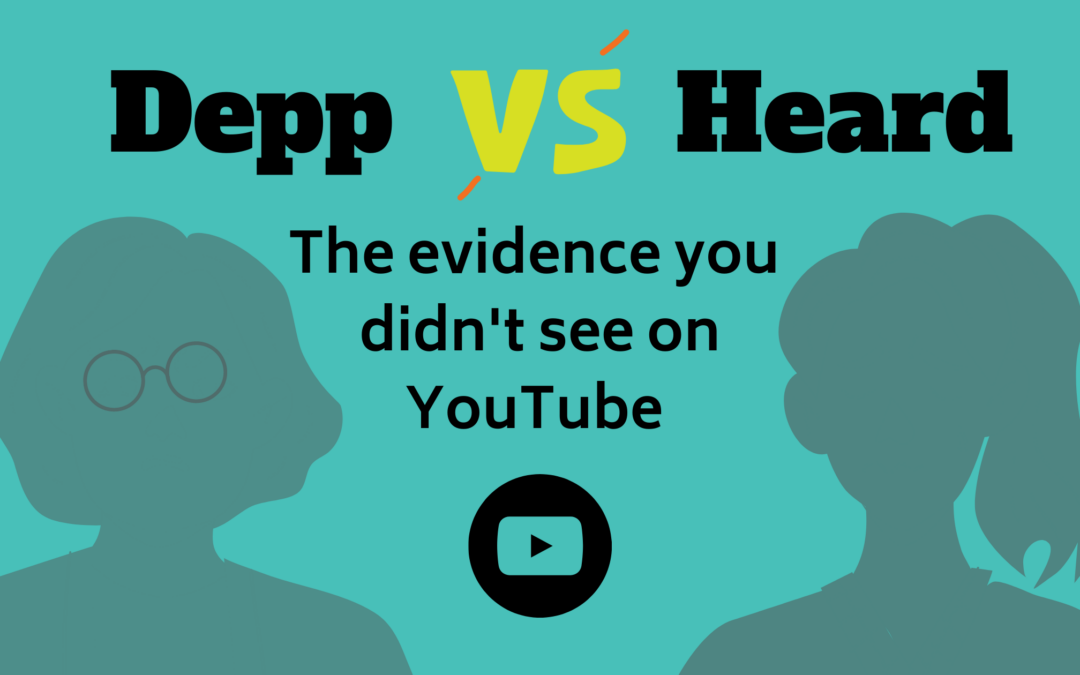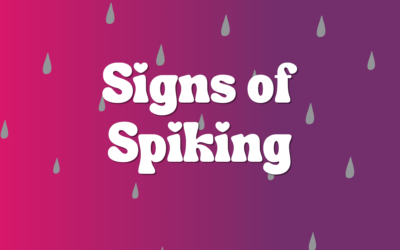Whether you have an interest in the issue of domestic abuse or not, it’s likely you’ve given some thought to the Depp vs Heard defamation case in recent weeks. As the high-profile case progresses, most public opinion currently seems to fall into one of three camps, those siding either with Depp or Heard, and those in the ‘they’re just as bad as one another’ camp. We aren’t here to pass our view on who is right. As professionals dealing with often complicated cases of domestic abuse, our view is that no case of domestic abuse can be clearly ruled without the presence of special measures. These are now backed by legislation as a result of the recent domestic abuse act. Regulations laid out in courts dealing with domestic abuse hearings both ensure the best chances of true outcomes and also limit any further harm to survivors resulting from the proceedings. However, despite this being possibly the most talked-about instance of domestic abuse, with extensive levels of evidence being shown around the world for all to see, a part of the conversation seems to have been lost in the narrative. That is the research-backed evidence and best practices that guide specialist professionals dealing with complex cases to identify and protect true survivors. The Depp vs Heard case particularly highlights the complexity of cases where Counter Allegations, Alcohol and Substance Misuse and Mental Health concerns are present.
Counter Allegations:
While it can be easy to look at a case of domestic abuse and think both parties carry blame, the reality is that usually there is a primary survivor and a primary perpetrator. However, it does remain true that deciphering between the two can be challenging for a multitude of reasons. Violence from a survivor is not uncommon in domestic abuse cases. Survivors may carry out violence in self-defence to protect either themselves or others such as children and pets, and sometimes they use violence in retaliation. Research also shows that survivors may also carry out violence in attempts to pre-empt abuse carried out towards them. While it might seem counter-productive to outsiders that a survivor would ever instigate violence themselves, there are a number of reasons they may do so. Primarily to try and regain some sense of control, as survivors have so much of their own ability to self-advocate stripped away by the person abusing them. Also, it can be for their own or another’s protection. For example, they may wish to control the form of violence used to be those they can best withstand and protect themselves from. Or they may wish to control the time when the abuse happens to times they know it’s more likely to be disrupted or to be at times children aren’t at home. Without a sound understanding of the full breadth of trauma responses and abuse management techniques survivors use, the true picture can be very difficult to understand. This makes it much easier for perpetrators to successfully place the blame onto the survivor and claim that they themselves are the true survivor. Alongside this, perpetrators are often highly manipulative and deceptive with many who know them either surprised to learn of their abusive behaviours, or completely dis-believing.
The key takeaway here is that there is usually a true survivor, and while it can be an easy trap to fall into, dismissing both parties as equally guilty is to do a disservice to a survivor who has already endured significant suffering for which they’re not to blame.
Alcohol and Substance Misuse:
There are multiple reasons substance misuse can be common in cases of domestic abuse. Substance misuse is often the symptom of self-medicating to deal with underlying emotional or physical pain. It’s not hard to see how survivors, or anyone dealing with ongoing trauma and/or other mental health issues might turn towards substances. However, inducing or encouraging substance misuse can also be a tactic used by perpetrators to gain control over their subject. They become easier to monitor and manipulate when under the influence or dependent on substances. For example, survivors with substance use related memory loss can be easier to gaslight, and perpetrators may use the supply of drugs as a method of control. It is always important to remember at its core, domestic abuse is primarily about power and control. Not violence. Therefore, tactics used by someone perpetrating abuse are often chosen for their ability to remove a survivor’s own sense of self-agency. Finally, alcohol can also be used to excuse incidents of abuse. If someone experiencing addiction continues to use substances knowing they’re likely to abuse when they do, then they’re making a choice to abuse by not addressing their own substance dependency.
Mental Health Conditions:
Mental health presentation in domestic abuse cases too can have many underlying causes. Impacts to mental health are a common result of experiencing domestic abuse. A person experiencing, or who has experienced domestic abuse can develop Post Traumatic Stress responses which can include depression, anxiety, panic and hypervigilance or hyperarousal. Furthermore, there is an emerging body of evidence to suggest that trauma could possibly also contribute to the development of conditions such as Borderline Personality Disorder and Bipolar. Furthermore, as we touched on earlier around a survivor’s own use of violence, trauma responses can lead to survivors acting in ways people might typically find suspicious. For example, some people may have fragmented memories, they may freeze up or become hypervigilant. These responses could be interpreted as them being unreliable witnesses, being the aggressor or unwilling to co-operate. This can be especially the case during police questioning or examination at court where they’re reliving the abuse and experiencing repeated trauma as a result of that. Also, it’s important to recognise that domestic abuse rates among those with mental health conditions are higher than average. Those with pre-existing mental health conditions may be targeted by people who use abusive behaviours. This is because such survivors may be more vulnerable to being controlled due to symptoms of their condition. They may also be more likely to have abuse towards them minimised as a response to their own ill-health, or be identified as the more chaotic one in the relationship. This can lead to them being misidentified as the perpetrator. People with mental ill-health however can use their condition as an excuse. They may refuse effective and reasonable treatment despite knowing the negative impacts their condition has on their behaviour and those around them.
In summary, cases of domestic abuse are often complex making it hard to uncover the truth and navigate the survivor to safety. In cases with counter-allegations, substance misuse and mental health concerns, this can be especially true. Often, the only thing that is plain to see, is the pain and suffering of those involved. And that extensive expertise and support are needed to facilitate the survivor (and also perpetrator) to go on to lead lives that are free from hurt and abuse.
About Equation:
Equation is a specialist charity working to prevent domestic abuse and sexual violence by educating professionals, young people and the whole community about domestic abuse and equal and healthy relationships. We also operate the Nottingham/shire support services for male survivors and offer a perpetrator programme. Learn more about our work and referral pathways to support online.
Related Posts
Worried about your friend’s relationship?
Worried about a friend? Good friends are everything. But sometimes our closest friends can be suffering in silence With 1 in 4 women experiencing domestic abuse as well as many men, trans and non-binary gendered people, it is likely we know at least one person...
Signs of Spiking and how to #HelpAFriend
Good friends know each other inside and out. While the signs of spiking can be similar to being drunk, there are things friends can see if you know what to look for. If your friend seems more drunk than normal for drinking the usual amount, check for...
Stay Up To Date
Latest campaigns and projects, upcoming events and fundraising challenges, volunteering and job opportunities.
How you can help
No matter how much time, money or resources you can afford to give, your support will make a difference.
£10
Give monthly
Could pay for four children
to take part in our early intervention projects
£30
Give once
Could pay for one primary school child to receive our healthy relationship education program
Support equation
Check out the other ways you can support us



